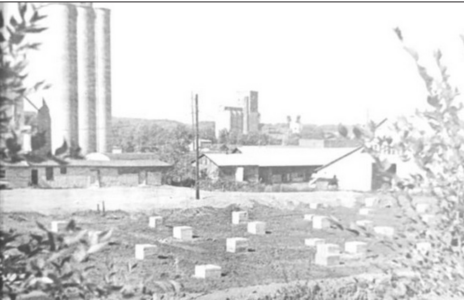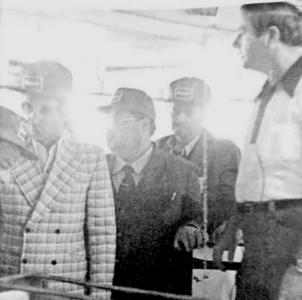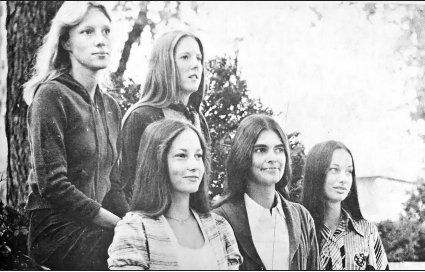Wipeout or right-on, temporary permit is new idea
One man called it a wipeout of the entire zoning ordinance.
Another said it was “a loophole as big as the whole ordinance.”
A third disagreed, saying it was an “excellent” idea.
A fourth warned against action motivated by politics.
THEY WERE commenting on the concept of temporary use permits approved by the New Ulm City Council last week, an idea which is apparently a first, at least in Minnesota.
The concept would allow issuance of permits on a year-to-year basis for uses of property not permitted under present zoning restrictions.
Councilmen did not spell out details except to say the council should be able to specify conditions by which permits are issued.
The permits were suggested at the council meeting by Councilman Bill Gafford as a way to help Donald Potter use two residentially-zoned lots for display of farm implements. Because the lots are near a school and church, such display would not be allowed even if the lots were rezoned to a business zone, under the zoning ordinance as it now stands.
CITY ATTORNEY Terence Dempsey knows of no similar provision elsewhere and has written state and national municipal organizations asking if they do.
If they don’t he “will have to make one up,”he said.
Brown County issued temporary use permits while a final zoning ordinance was being drafted, but only for mobile homes,according to William O’Connor, attorney for Potter. O’Connor is also assistant Brown County attorney.
The temporary permits were used by the county in case the final zoning ordinance made the mobile homes a non-conforming use, O’Connor said.
He said the mobile home instance was the only use of such permits by the county, as far as he remembered.
DEMPSEY WAS directed by the council last week to draw up an amendment to the city zoning ordinance incorporating the temporary use permit idea.
He told the Journal that, as he understands it, the council wants to have the broad power to license use of a property on request of landowner or tenant,irrespective of any zoning restrictions, with each case decided on its own merits. The permit would be renewable annually.
This lack of spelled-out criteria in the ordinance makes the idea different from temporary use permits in other towns, Dempsey said.
SOME OF the questions which remain unanswered are whether a public hearing will be held on each permit application; if so will it be before the planning commission with a recommendation to the council, or directly before the council; will there be published notice or notice sent to adjoining property owners of the hearing.
If each case is decided on its own merits by the council, with no set criteria, this might mean that new councilmen would vote differently from former officials on a renewal. This raises the question of whether renewal should be automatic if the petitioner has made no material change in the use okayed by the permit.
Councilmen did not discuss what grounds would be basis for refusal to renew the year-to-year permit.
The council will have to refer the proposed amendment prepared by Dempsey to the city planning commission for a public hearing and recommendation.
STAN PESKAR, chief legal counsel for the Minnesota League of Municipalities and one of the people Dempsey is checking with for sample ordinances, said he couldn’t think of any other cities in the state with such a temporary use permit provision.
He said he thought provisions do exist which allow location of mobile homes outside mobile home courts on a temporary basis during construction of a permanent residence.
Peskar said a general rule on council action, if an ordinance doesn’t spell out all details, is that the action must apply uniformly to all similar cases or it may be judged arbitrary if taken to court.
ATTORNEY O’CONNOR, representing Potter in place of associate Robert Berens, who was out of town, likes the temporary use permit idea.
He said he understood the real objection to the Potter rezoning was based not on the farm implement use itself but rather on the fact that rezoning would open the way to other uses of the land if the land were sold.
“If that’s true, what’s wrong with allowing the use,” he said, especially when the council could decline to renew the permit if the use became a nuisance.
DR. W.S. AKRE, former chairman of the city planning commission, said he is not acquainted with this type of concept and doesn’t feel qualified to say whether it would work or not.
“My immediate reaction is it probably is less desirable than permanent zoning. I think councilmen are reacting to political things.”
He said if asked for his advice he would say,”put politics aside and look at what’s best for the community as a whole.”
New Ulm Daily Journal
Sept. 26, 1975



